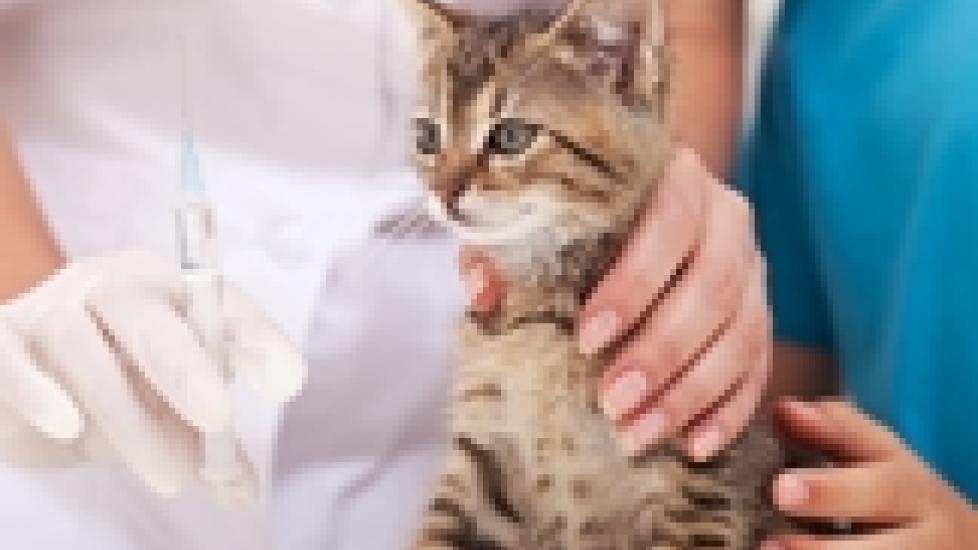Why Do Puppies and Kittens Need So Many Boosters?
In response to a recent post on whether or not it is safe for puppies who are just starting their vaccination series to attend socialization classes, TheOldBroad commented:
I was under the impression that multiple vaccines were given to keep the immunity up. I'm guessing that must not be true.
Am I understanding correctly that immunity is not at a full level until the full series of vaccines is given?
Repeated vaccines (e.g., canine distemper, parvovirus, and adenovirus and feline viral rhinotracheitis, panleukopenia, and calicivirus) are necessary to fully protect puppies and kittens, but many owners misunderstand the reason why.
The vaccine series (i.e., the same vaccine given multiple times) doesn’t really “boost” immunity after every shot. In most cases, a single or at most two vaccines given three to four weeks apart is sufficient to produce “full” immunity, so long as the body is able to respond to the vaccine(s). This last point is at the heart of the reason why puppies and kittens need so many shots when they are young.
Newborn animals have antibodies circulating in their bloodstream that they picked up from their mothers while in utero or through nursing colostrum (first milk). These antibodies help protect puppies and kittens while their immune systems are still developing. This is a great system because if the mom has come in contact with a pathogen, her offspring will likely do the same.
Maternal immunity that is directed against vaccines the mom has received has an unintended consequence, however. It can inactivate vaccines that are given to her offspring. The antibodies that youngsters receive from their mothers gradually fade away over the first few months of life, but the speed with which this occurs is variable between individuals. We have no practical way of knowing exactly when a particular puppy or kitten’s maternal immunity has waned and he or she is therefore both susceptible to disease and able to respond to a vaccine.
Research has determined that most puppies and kittens have strong maternal immunity up to about eight weeks of age. This is why veterinarians don’t typically recommend starting the vaccination series much before this point. Not only are most puppies and kittens adequately protected by maternal immunity (assuming their mothers are well vaccinated themselves), but any vaccines that are given before seven to eight weeks of age are likely to be inactivated. Research has also shown that maternal immunity has waned to the point where the vast majority of youngsters are capable of responding to vaccines by 16 weeks of age, which explains why the last shots in the series are typically given at about this time.
Those two months between 8 and 16 weeks of age are problematical, however. Some youngsters with weak maternal immunity are susceptible to disease and capable of responding to a vaccine right around 8 weeks, others at 9 weeks, others at 12 … you get the idea. For that reason, the typical schedule of vaccines being given roughly every 3 weeks between the ages of 8 and 16 weeks was settled upon as a reasonable way of protecting almost every pet, regardless of when their maternal immunity fades.

Dr. Jennifer Coates
Image: Ilike / Shutterstock
